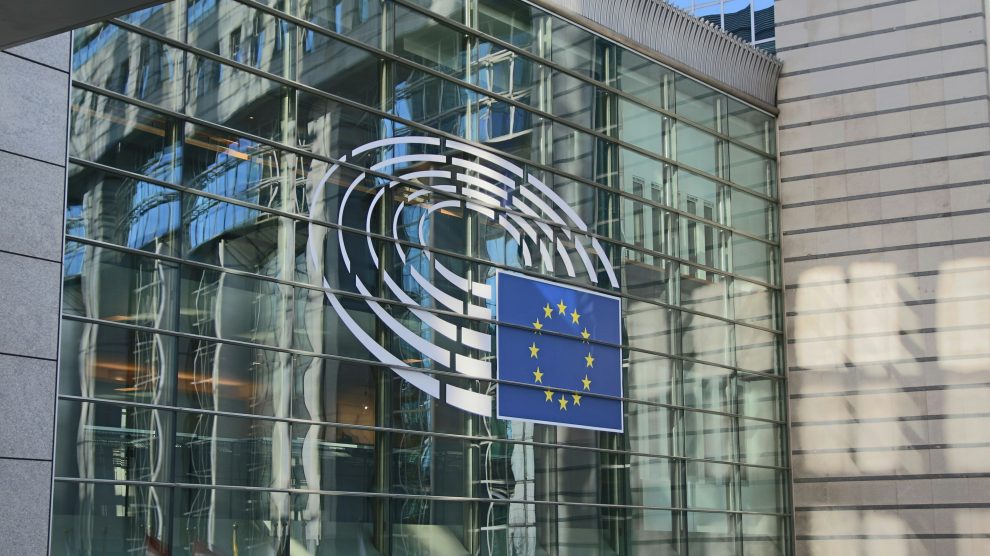The 2024 European elections are expected to bring more populists into the European Parliament, leading—at least in the short term—to a new way of doing politics, one where economy will matter less and identity considerations will be more central.
In both of its previous Global Trends reports, Paradoxes of Progress and A More Contested World, the US National Intelligence Council highlights front-and-centre that perhaps one of the greatest threats to Western countries doesn’t actually come from terrorism or, to the extent to which it may be seen as an independent variable, even a shifting balance of power between great powers.
Instead, it comes from the West’s own internal dynamics—fiscal foremost.
- A creaking Hungarian economy is forcing erstwhile supporters of Viktor Orbán to consider their options
- Eastern Europe? Ex-Soviet? A new campaign sets out to end lazy stereotypes
- Reimagining Central and Eastern Europe’s future development through the Three Seas Initiative
Quite simply: the United States, which for decades has been able to enjoy the ‘exorbitant privilege’, alongside many Western states, may soon spend more on servicing debt than on defence.
Much of that debt, in turn, hasn’t been accumulated by spending on infrastructure, or research and development, but by what may ultimately be called populist appeasement to bypass political deadlock.
Indeed, the overall situation has deteriorated enough that Robert Gates, the former secretary of defence, recently called America a ‘dysfunctional superpower’.
In turn, once that spending becomes fiscally untenable, it would not be out of the realm of imagination to assume a rise in populism. For the business community that translates into the risk of higher taxes, trade instability, uncertain immigration regulation, the possibility of higher inflation, and, in no small part, a potential for economic instability.
In the Netherlands, for example, where the extreme right won the 2023 parliamentary election, we already see public opinion becoming more and more anti-immigration, prompting Dutch businesses to push back against this dynamic.
Populists in the European Parliament
The 2024 European elections are expected to bring more populists into the European Parliament, which could pose additional challenges in adopting those policies that Europe needs to move forward.
This change in the political landscape will most likely lead, at least in the short term, to a new way of doing politics, one where economy will matter less and identity considerations will be more central. This increases political risks and, in the absence of adequate strategies, makes the lives of businesses harder.
These developments are definitely not good news for business but there are upsides to more or less everything: when the environment changes, those who adapt the fastest have an advantage over the rest.
First, businesses can use this electoral period to promote normal politics and to send a strong signal about what a populist surge could mean for Europe’s economic health and for people’s incomes.
Second, businesses can prepare themselves for complicated times, by taking political risk seriously.
Risk management: Qualitatively if not quantitatively
A business cannot fully guard against risk, in particular the sort of systemic and multi-faceted risk under discussion. Partially, this is because the standard methods of quantitative risk management are based on distributions and parameters which themselves change. However, there are simple steps to prepare and develop resilience in terms of qualitative risk management: identification, assessment, prioritisation, and management.
The qualitative risk management process begins with risk identification. This phase involves open discussions, brainstorming sessions, interviews, and workshops with relevant stakeholders. Participants, drawing from their expertise and experience, explore potential risks that may affect an organisation. The emphasis here is on diversity of thought, bringing together individuals from different departments and backgrounds to create a comprehensive risk profile.
Then comes assessment. Once the risks have been identified, they are duly assessed. This assessment, however, is subjective, involving the application of qualitative descriptors rather than numerical values. Assessors, usually experts in their respective fields, employ their judgment to estimate the likelihood and impact of each risk. Risk severity is typically categorised as low, medium, or high, and likelihood is similarly described.
Following the risk assessment, the risks are then prioritised based on their potential impact and likelihood. Risks that are both highly likely and highly impactful are considered top priorities, while those with a lower likelihood or impact may be lower on the list. This prioritisation enables organisations to focus their resources on mitigating or exploiting the most critical risks.
Takeaway
The political situation in many Western countries has involved ‘buying peace’ using debt for the better part of a few decades.
The fiscal limit of that process is being reached and populism may be expected to rise in response. The June European elections are a first major test and the November US presidential elections could become a coronation moment for populist politics.
In this turbulent context, businesses may need to embrace resilience and anti-fragility as core to their function, even when quantitative data may not be reliable, through qualitative risk management—and even look at the bright side: many competitors might not prepare.
In 2024 and beyond, political risk should be at the top of each major business’ agenda.
Photo by Guillaume Périgois on Unsplash.
Unlike many news and information platforms, Emerging Europe is free to read, and always will be. There is no paywall here. We are independent, not affiliated with nor representing any political party or business organisation. We want the very best for emerging Europe, nothing more, nothing less. Your support will help us continue to spread the word about this amazing region.
You can contribute here. Thank you.







Add Comment